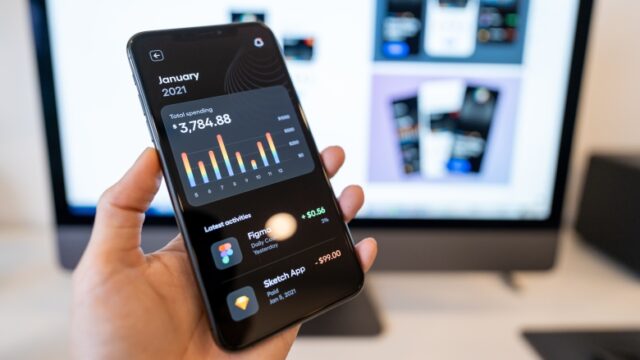In recent years, the rise of mobile applications has transformed how we interact, shop, bank, and communicate. However, with the convenience of mobile apps comes a growing concern over security vulnerabilities and data privacy. As cyber threats become more sophisticated, developers and businesses are searching for innovative solutions to protect sensitive user information. One promising technology that has gained traction in this realm is blockchain. In this blog, we will explore the role of blockchain technology in enhancing mobile app security and the benefits it brings to developers and users alike.

Understanding Blockchain Technology
Blockchain is a decentralized and distributed digital ledger technology that securely records transactions across multiple computers. Each block in the chain contains a list of transactions, and once a block is added to the chain, it is nearly impossible to alter or delete the information contained within it. This immutability and transparency are fundamental features of blockchain that make it an attractive option for enhancing mobile app security.
1. Enhanced Data Integrity
Immutability of Data
One of the core benefits of blockchain technology is its ability to ensure data integrity. Once a transaction is recorded on the blockchain, it cannot be changed or deleted without the consensus of the network. This immutability makes it extremely difficult for malicious actors to tamper with data or engage in fraud.
Real-World Application
In mobile apps that handle sensitive information, such as financial transactions or personal data, the use of blockchain can significantly reduce the risk of data manipulation. For instance, in banking apps, every transaction can be securely recorded on the blockchain, ensuring that users have access to a transparent and tamper-proof transaction history.
2. Improved Authentication and Identity Management
Decentralized Identity Solutions
Blockchain technology can provide users with decentralized identity solutions, allowing them to control their personal information without relying on centralized authorities. Users can authenticate themselves without sharing sensitive data, reducing the risk of identity theft.
Real-World Application
For mobile apps that require user authentication, blockchain can enable secure login processes. Instead of relying on traditional username and password combinations, apps can use blockchain-based identity verification methods, such as digital signatures, which are difficult to forge.
3. Secure Transactions
Encrypted Transactions
Blockchain ensures that all transactions are securely encrypted and can only be accessed by authorized parties. This encryption provides an additional layer of security for mobile apps that handle financial transactions, ensuring that users’ sensitive data is protected.
Real-World Application
E-commerce and payment apps can benefit from blockchain technology by processing transactions through smart contracts. Smart contracts are self-executing contracts with the terms of the agreement directly written into code. This not only automates transactions but also enhances security by reducing the risk of fraud and chargebacks.
4. Protection Against DDoS Attacks
Distributed Network Resilience
Distributed Denial of Service (DDoS) attacks can cripple mobile apps by overwhelming them with traffic from multiple sources. Blockchain’s decentralized nature can help mitigate the impact of such attacks, as there is no central point of failure.
Real-World Application
By deploying mobile apps on a blockchain network, developers can distribute the load across multiple nodes. This distribution can help absorb and counteract DDoS attacks, ensuring that the app remains operational even under heavy traffic.
5. Transparent Audit Trails
Traceability and Accountability
Blockchain provides a transparent and traceable audit trail for all transactions and actions taken within a mobile app. This feature allows developers and users to verify the integrity of data and track any changes made.
Real-World Application
For industries that require regulatory compliance, such as healthcare and finance, maintaining detailed audit logs is crucial. Mobile apps can leverage blockchain to create secure and immutable audit trails, facilitating compliance with regulations and enhancing trust with users.
6. Reduced Risk of Data Breaches
Decentralization of Data Storage
Traditional mobile apps often store data in centralized servers, making them vulnerable to data breaches and cyberattacks. By utilizing blockchain technology, data can be decentralized and stored across multiple nodes, reducing the risk of unauthorized access.
Real-World Application
Healthcare apps, which deal with sensitive patient information, can benefit from decentralized storage solutions. By using blockchain to store and share medical records, users can maintain control over their data while ensuring that it is secure and accessible only to authorized healthcare providers.
Conclusion
As mobile apps continue to evolve and integrate more advanced functionalities, ensuring robust security measures is paramount. Blockchain technology offers a compelling solution to address various security challenges, from data integrity and authentication to transaction security and DDoS protection.


No responses yet